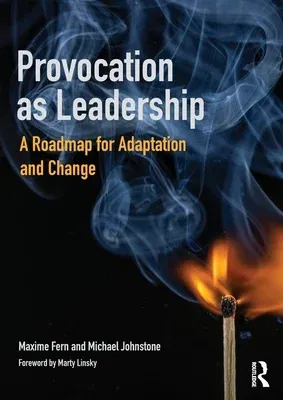To create deep change, you have to disturb people, or at least risk
doing so. Shaking people out of their comfort zones not only generates
the possibility of change but also elicits new information and brings
out hidden resources that people need to navigate unfamiliar waters.
Nevertheless, provoking without antagonizing or shutting people down and
tolerating their pushback are complex challenges, requiring skill and
will.
This is the first comprehensive provocation roadmap: why provocation is
necessary for effectively leading change, the different forms of
provocation, action tools and frameworks, and case studies illustrating
how change is achieved through the sustained and careful use of
provocation and disturbance, with strategies and tactics for minimizing
the risks involved. We illustrate, for example, how two Australian
farmers challenged centuries-old farming practice to regenerate their
properties and how a large American bank used the death of a revered CEO
to reinvigorate the business. We show how a young indigenous school
principal tackled entrenched attitudes to turn a failing school around
and how a national statistical service acted like a technology start-up
to innovate during the Covid-19 pandemic. The case studies address
change at the local level, within organizations, as well as on a
national scale. We finish with a synthesis of the lessons learned and a
set of ideas about building people's capacity to use provocation to
live, learn, and thrive.
Provocation as Leadership offers a blueprint for people who, using
provocation, want to ignite change and help their organizations, group,
or community break through to a better future. This book provides a
vehicle to see provocation in its potential for necessary disturbance,
to lay bare its anatomy, and give access to its possibilities, including
how to enable provocateurs to live another day.

